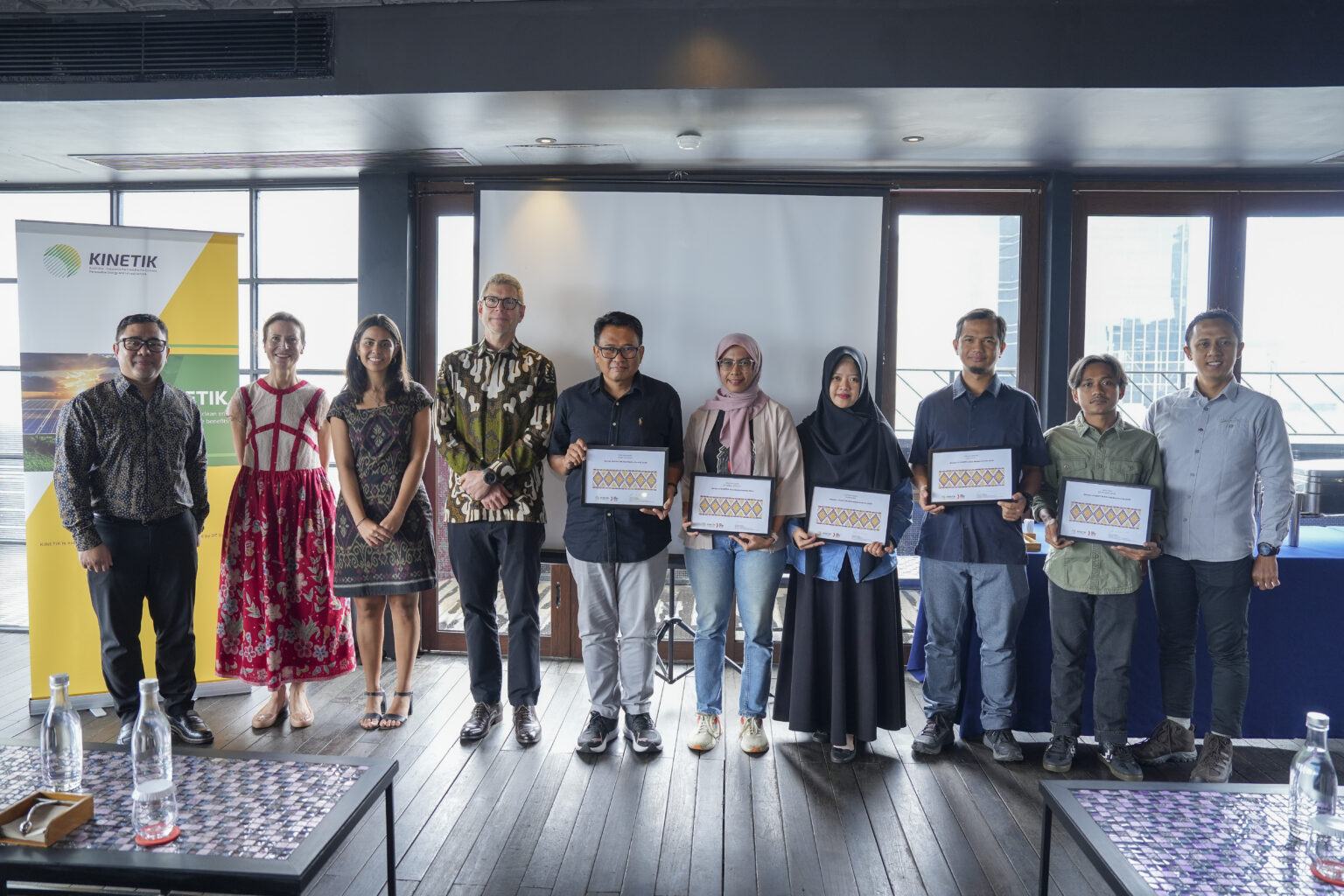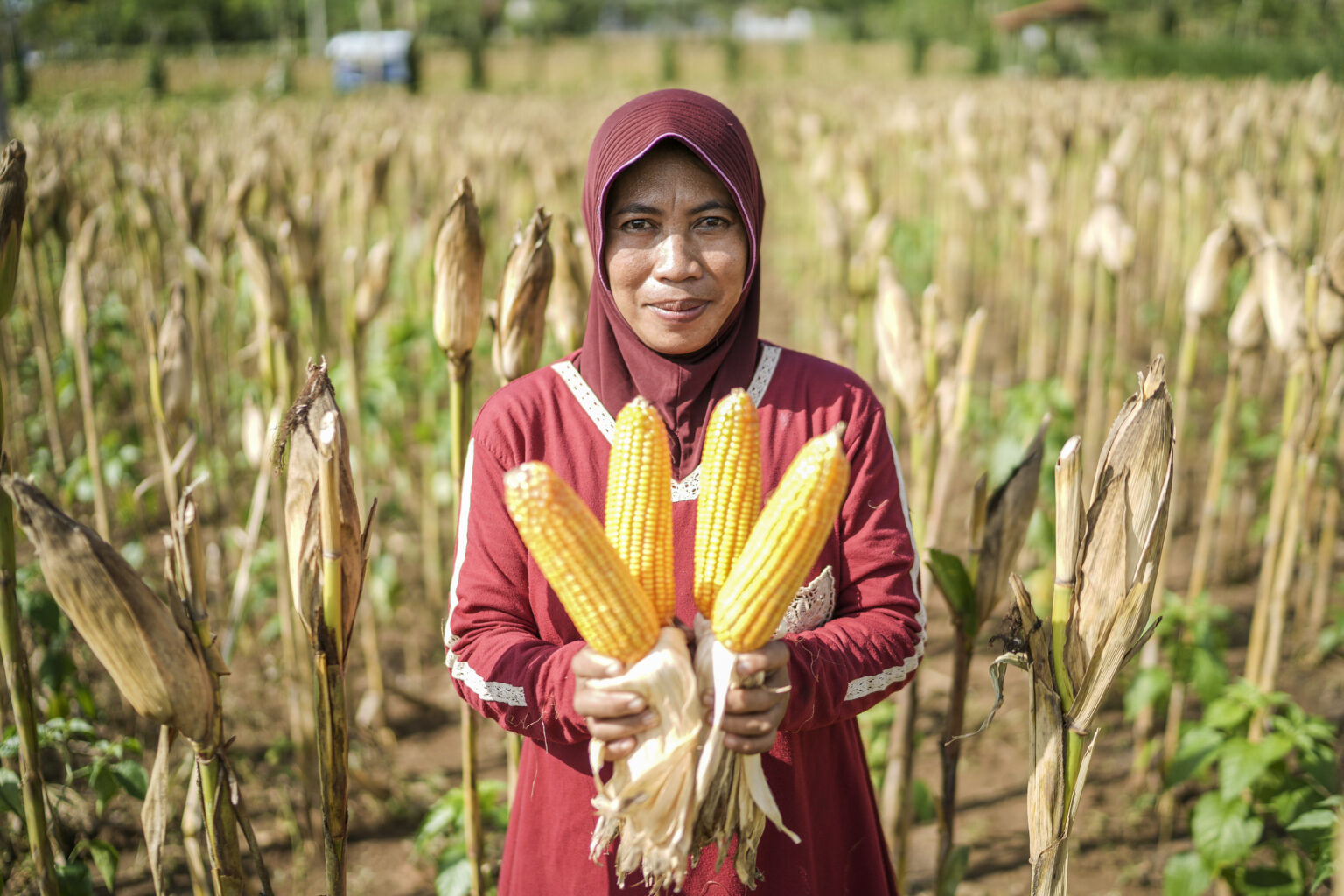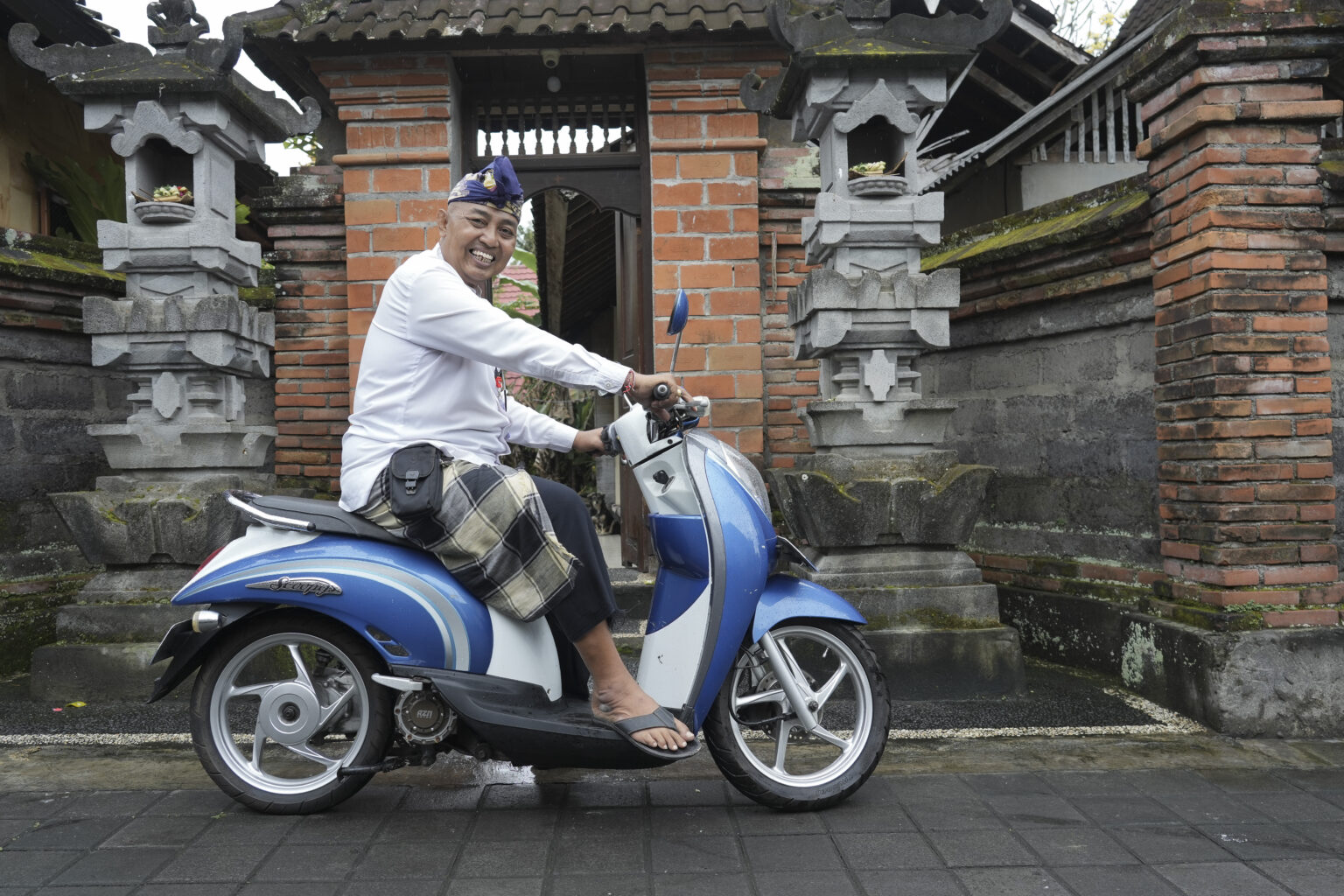Rising sea levels had submerged areas where houses once stood in Oesapa, Pariti, Nunbaun Dela, and Nunbaun Sabu, the seasons had become more unpredictable, stronger winds and higher waves were more frequent and there was damage to coastal infrastructure, fisherwoman Yasinta Adoe told the Climate Innovation workshop.
In 2021, East Nusa Tenggara was battered by Cyclone Seroja, the third deadliest cyclone on record in the Australian region, which killed more than 180 people in Indonesia and damaged boats.
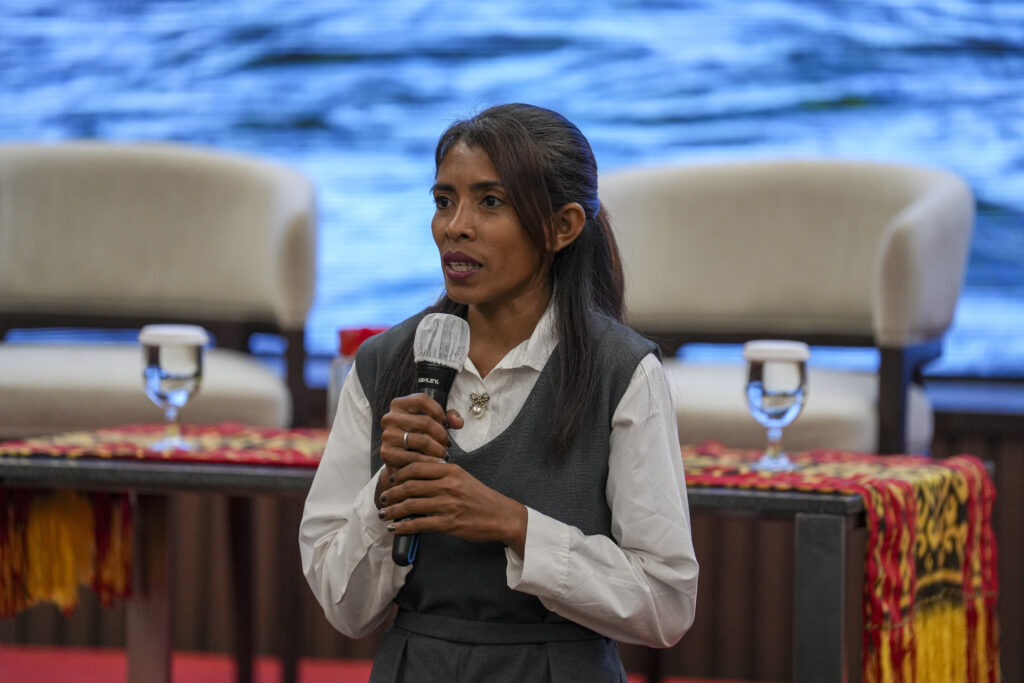
Yasinta said climate change was leading to an increase in fishing costs, such as rising boat rental fees, a decrease in seaweed and fish yields and unpredictable tidal changes, making it difficult for fishers to read the natural signs.
She said the coastal community was drawing on ancestral knowledge and nature’s lessons to adapt to the changing climate.
This included:
- Planting waru trees, which reduce erosion and form a defence against rising tides, a tradition passed down for generations in Pasir Panjang.
- Traditional octopus fishing using tobacco to lure octopuses, a gentle technique that avoids damaging coral reefs where they breed.
- Building fish houses (rumpon/rumah ikan) which restore marine habitats.
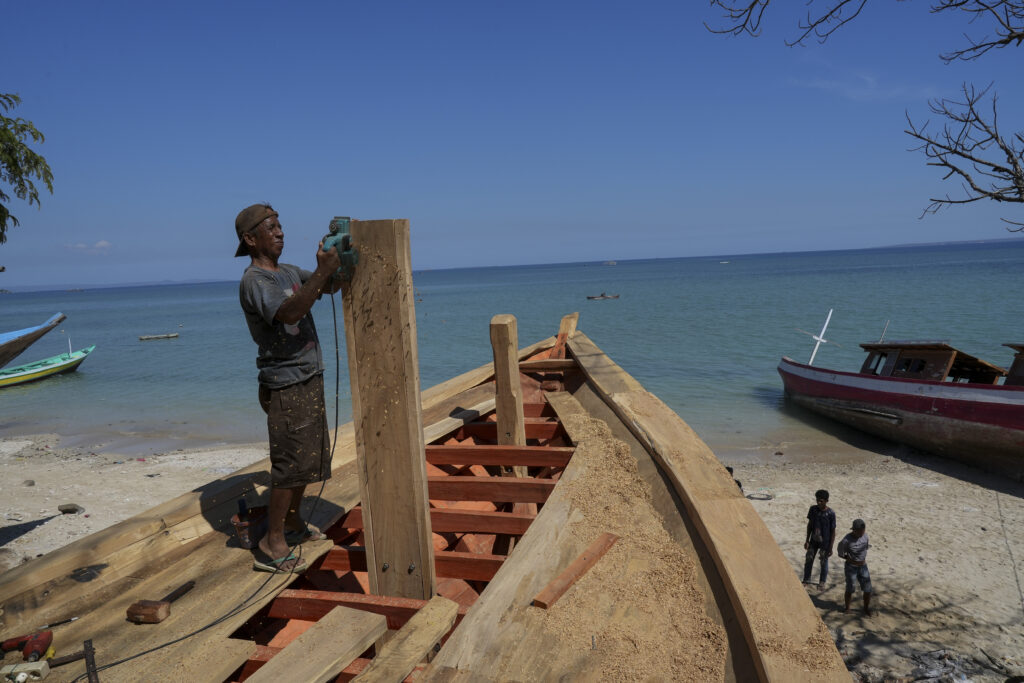
- Coastal guardianship in Pasir Panjang, where residents consistently discourage sand mining, even on a small scale, to protect the shoreline ecosystem.
- Mangrove planting in Tanah Merah continued through family traditions.
- Coral restoration efforts in Alak that revive reefs damaged by bleaching echoing ancestral teachings that forbade coral and limestone extraction to protect marine life.
Ben Vasco Tarigan is the co-founder of Kuan Timor Technology (Kuantek), which supplies clean water to villages in East Nusa Tenggara, which is characterised by low rainfall and a scarcity of water.
Kuantek is one of 15 climate startups from across Indonesia selected to be part of the KINETIK EX Entrepreneurs’ Program, which provides eight weeks of tailored mentoring, technical support and access to investors.
Ben told the workshop how simple technologies can unlock access to clean water and support local livelihoods.
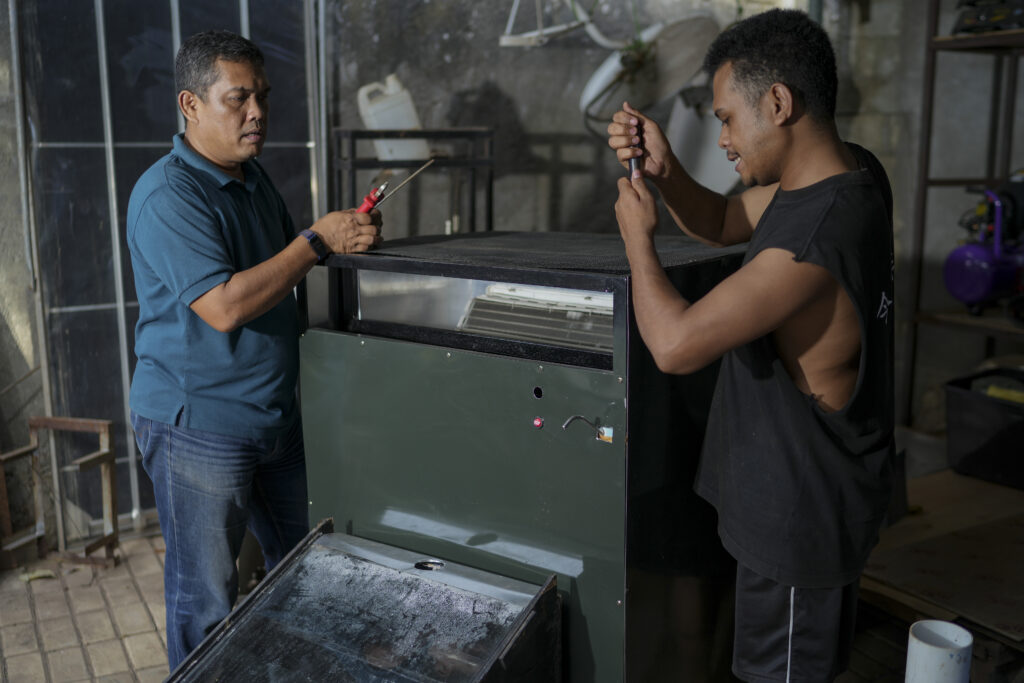
“Start with what people already know and can fix,” Ben said, stressing that innovation does not have to be complicated and it was important to design in collaboration with local communities.
Kuantek designs atmospheric water generators, which pull moisture from the air and condenses it into clean drinking water and community-built dehydrators, which dry chilli and vanilla.
These are designed with locally available materials that the community can maintain.
“The goal is not flashy tech that feels abstract,” Ben said. “It is about creating solutions that are human, practical, and sustainable”.
More than 50 participants from government, academia, community groups, NGOs, and the private sector joined eight teams at the workshop to brainstorm solutions to problems in their areas.

“What matters most is how your idea connects with the real needs of your community,” said Renaldo Sutjiady, a facilitator from New Energy Nexus.
The teams discussed how to address issues such as water scarcity, coastal erosion, waste pollution, erratic weather, and food loss with ideas ranging from eco-brick recycling and solar irrigation to smart water-saving faucets and coffee-briquette fuel.
Representatives from Cooperative Agency and Bank NTT shared funding opportunities, including microloans of up to IDR 10 million and sanitation loans of up to IDR 500 million.
They also discussed digital financing for local innovators who are ready to take the next step.

